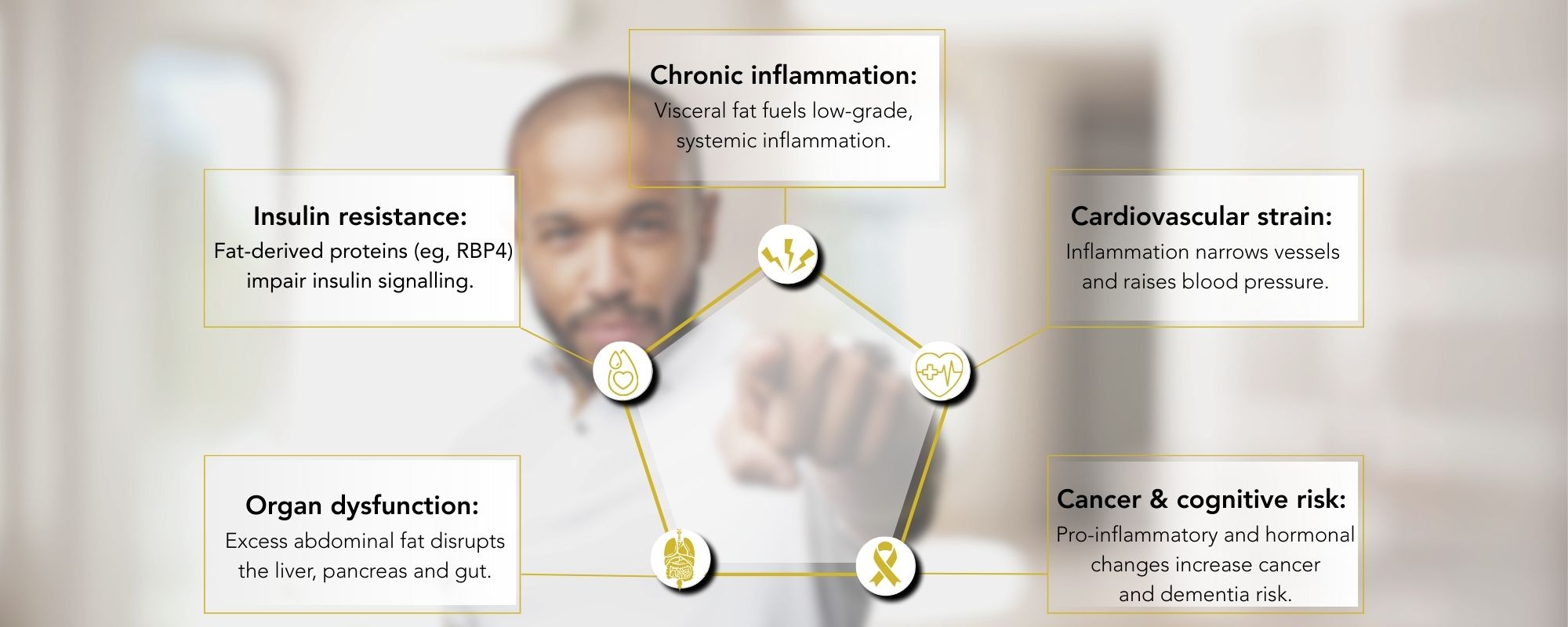
Pigmentation & Discolouration
Age Spots Discolouration Hidden Causes of Chronic Melasma Hormonal Pigmentation / Melasma Pigmentation Overview PIH Poikiloderma of Civatte Sun Damaged Skin Why Melasma is Difficult to Treat Why the Sun is Stronger in SASensitive & Reactive Skin
Eczema (Dermatitis) Ingrown Hairs - Razor Bumps Perioral Dermatitis Rosacea / Red Skin Sensitive SkinSkin Concerns in Dark Skin Types
Acne in Dark Skin Dermatosis Papulosa Nigra (DPN) Melasma / Pigmentation In Dark SkinSkin Lesions & Growths
Keloids Onychomycosis (Nail Fungus) Pre-Cancerous Skin Lesions Scars & Scar Removal Sebaceous Hyperplasia Skin Tags Syringoma Warts Wound HealingGeneral Skin Health & Types
7 Sins of Skin Ageing Four Primary Skin Types PCOS and Your Skin Zombie CellsFace, Neck & Chest
Lax / Loose Skin Prejuvenation Sagging Face Skin & Ageing Sunken Cheeks Volume Loss WrinklesLower Face & Mouth
Ageing Lips Double Chin Downturned Mouth Marionette Lines Nasolabial Folds Smoker's LinesUpper Face & Eyes
Bunny Lines Eye Bags Eye Wrinkles / Crow's Feet Sagging Brows Under Eye Dark CirclesAgeing Skin & Conditions
Ageing Décolleté Ageing Hands Ageing Neck Spider Veins Stretch Marks (Striae)Botulinum Toxin Injections
Botox ® & Dysport ® Botulinum Toxin by Decade Brow Lift Palmar Hyperhidrosis Reasons Botulinum Toxin Might Wear Off Too Soon Treatment for Gummy Smile Treatments for Bruxism / TMJ Underarm HyperhidrosisBiostimulators
Biorevitalisation Biostimulation Overview HArmonyCa Profhilo® Revanesse® Pure™ Sculptra Skin BoostersDermal Fillers
Dermal Fillers Juvederm by Allergan Restylane by Galderma Revanesse® by Prollenium® The Science Behind Revanesse®Targeted Filler Treatments
3D Liquid Facelift Hand Rejuvenation Jawline Reshaping Lip Enhancement Magic Needle Mesolift MD Codes™️ Nefertiti Contour Neck LiftInjectable Mesotherapy
Cecarrelli Fat Lipolysis Fat Burning Injections Mesotherapy Mesotherapy for Eye Bags Platelet-Rich Fibrin (PRF) Vampire Facial (PRP)Subcision
Subcision for Acne ScarsCutera
Acutip 500™ CO2 Laser Resurfacing Contact Yag Cutera Lasers Laser Genesis™ Rejuvenation Laser Hair Removal Laser Vein Removal Long Pulsed ND:Yag ND:Yag Skin Tightening Pearl Fractional Pearl Fusion Pearl™ Rejuvenation Titan® Skin TighteningRadiofrequency
Accent ™ Endymed 3Deep RF Tightening Exilis Elite Heat & Sound Technology Lavatron Multipolar vs Monopolar Slimlux Face & Body TitaniaSignature Treatments
Acne & Rosacea Facial Growth Factor–Induced Microneedling Microtox Glow Facial Nasolabial Lift Treatment Star Gaze Eye TreatmentChemical Peels
Chemical Peels Overview Dermaplaning Eye Peel Treatment Intense Peels & Laser Peels MesoBrite™ MicrodermabrasionBody Shaping & Contouring
Body Contouring Carboxytherapy for Body Cellulite Solutions Cryolipo Fat Freezing Endymed ContourWeight Loss Solutions
InBody Analysis Renewal Institute Diet (RID) Shape Up Weight Loss and Chronic Health Why Lifestyle MattersHair & Scalp Solutions
Carboxytherapy for Hair Loss Mesotherapy for Hair Loss Microneedling for Hair Loss
Visceral fat is a specialised form of body fat stored deep in the abdominal cavity, enveloping the stomach, liver, intestines and other organs. While subcutaneous fat lies just beneath the skin, visceral fat remains hidden from view—yet it typically accounts for around 10–15% of your total body fat. Often dubbed “active fat,” visceral adipose tissue secretes bioactive molecules that influence metabolism, inflammation and hormone function.
Excess visceral fat is metabolically harmful. In contrast to subcutaneous fat, it produces a host of inflammatory cytokines and hormones that can influence your health in the following ways:
Several factors contribute to the build-up of visceral fat:

At Skin Renewal, every journey is guided by our experienced medical team, ensuring safe, evidence-based treatments tailored to your unique physiology. Our doctor-led approach combines cutting-edge technologies—such as cryolipolysis, radiofrequency, and carboxytherapy—with personalised nutritional and lifestyle plans, creating a powerful multiplier effect that amplifies results. By layering complementary modalities under expert supervision, we don’t just target isolated fat pockets—we transform your metabolic health and sculpt lasting, holistic change.
Losing just 10% of your body weight can be a transformative experience. You’ll notice steadier energy levels, improved blood sugar control and reduced strain on your heart and joints. Clinically, this modest reduction often translates into lower blood pressure, improved cholesterol profiles, and a significant drop in diabetes risk—benefits that ripple through every aspect of your well-being. Imagine breathing more easily, moving with greater comfort and feeling lighter in both body and mind.
Visceral fat treatments are available in Gauteng at the Morningside, Parkhurst, Rosebank, Bedfordview, Fourways, West Rand, Irene, Waterfall, Irene, Lynnwood and Brooklyn clinics, as well as in the Western Cape at Cape Quarter, Claremont, Constantia, Century City, Stellenbosch, Paarl and Willowbridge clinics, and Kwa-Zulu Natal at the Ballito, Durban and Umhlanga clinics.
Visceral fat is the “deep” fat stored around your internal organs in the abdominal cavity. Unlike subcutaneous fat, it’s metabolically active. It secretes inflammatory hormones, increasing the risk of heart disease, type 2 diabetes, stroke, certain cancers and cognitive decline.
The simplest screening tool is waist circumference: a measurement of ≥ 80 cm in women or ≥ 94 cm in men suggests elevated visceral fat. Your Skin Renewal team can also offer body composition analysis for a more precise assessment.
Evidence-based strategies include:
Moderate aerobic exercise.
Twice-weekly resistance training.
A whole-food, low-glycaemic diet rich in vegetables, lean proteins and healthy fats.
Stress management techniques and 7–8 hours of quality sleep nightly.
Visceral fat treatments are available in Gauteng at the Morningside, Parkhurst, Rosebank, Bedfordview, Fourways, West Rand, Irene, Waterfall, Irene, Lynnwood and Brooklyn clinics, as well as in the Western Cape at Cape Quarter, Claremont, Constantia, Century City, Stellenbosch, Paarl and Willowbridge clinics, and Kwa-Zulu Natal at the Ballito, Durban and Umhlanga clinics.
Visceral fat is the “deep” fat stored around your internal organs in the abdominal cavity. Unlike subcutaneous fat, it’s metabolically active. It secretes inflammatory hormones, increasing the risk of heart disease, type 2 diabetes, stroke, certain cancers and cognitive decline.
The simplest screening tool is waist circumference: a measurement of ≥ 80 cm in women or ≥ 94 cm in men suggests elevated visceral fat. Your Skin Renewal team can also offer body composition analysis for a more precise assessment.
Evidence-based strategies include:
Moderate aerobic exercise.
Twice-weekly resistance training.
A whole-food, low-glycaemic diet rich in vegetables, lean proteins and healthy fats.
Stress management techniques and 7–8 hours of quality sleep nightly.



